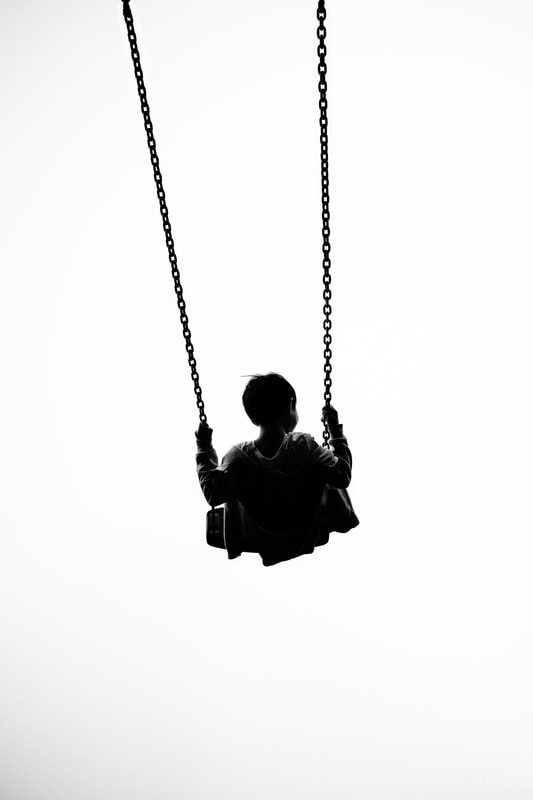|
Another shooting incident at a high school leads to the by now all-too-familiar triage of support trying to cope with the aftermath. But it's not enough:
"Among kids exposed to traumatic violence, short-term symptoms immediately after such incidents include trouble focusing, managing emotions, and negotiating relationships. The effects of childhood trauma also show up later in life: As adults, children who witnessed violence will be more likely to suffer from depression, deal with substance abuse, and struggle with obesity."1 The long-term effects include far more than the few listed. As adults, those of us exposed to traumatic violence are more likely to suffer from illness, anxiety, employee absenteeism, and ultimately a shortened lifespan. It raises our risk levels on the ACE test, a test of childhood adversity. Why? Because these events are locked in our body until we process and release the emotional learning around them. Emotional learning is the most important evolutionary advantage for a social species like humans, and not one drop of it is wasted. We're not taught how to learn emotionally; in fact, we are taught to stuff emotions and move on. These emotions are neurochemicals that lodge in our bodies. In quantity, neurochemicals are inflammatory and inflammation leads to disease, so we're more likely to develop illness if we have traumatic backgrounds. Still, people self-medicate. Delving into the unconscious seems too scary. But what if you could easily learn from emotions? What if they're not just a hodgepodge of random, tangled-up bad feelings? What if feeling them reduces your stress? What if doing this allows you to do better on tests, perform better at work, reduces pain, reduces the amount of time you spend sick, and increases your emotional intelligence? That's what I've found acupressure does. I've used myself as a guinea pig. I'm a poster child for childhood trauma; my dad was an active duty US Air Force C-130 pilot in the Vietnam War and I was born during the war. I was constantly sick, I had chronic Epstein Barr, I had leaky gut, I had an autoimmune illness. I'm convinced this is what humanity needs to keep evolving: spending more time in the cortex and prefrontal cortex. Stress puts us into the brain stem and emotional brain. It has us in survival mode. Success belongs to those in cortex-mode, which is executive thinking. Care to try it? Check out my YouTube channel. I demonstrate some basics that will have you making improvements in your quality of life immediately. I also teach it. You can sign up for one class or for the series. Check out my classes in PanHarmonic Healing® here, in Brain Gym® here, and in Touch for Health here. I think all three make the best combination for self-healing I've found. For most of us, childhood held some trauma. Why not give yourself the gift of freedom from the past? You'll still be yourself; you'll just get to spend more and more time in a good head space, relaxed, and experiencing more joy than you thought was possible.
0 Comments
--Photo by Arthur Aldyrkhanov on Unsplash
Dr Katherine Reed, biochemist and mother of five, knew something was wrong with her youngest daughter, Brooke. Once Brooke was diagnosed with autism, her mother was determined to help her. Through research and trial and error, she learned how to help Brooke: by switching what she ate to entirely unprocessed food. If you are wondering if your child's autism symptoms could be helped by changing his or her diet, and wondering if the effort is worth it when life is hard enough already, here is one woman's journey. She is passionate about helping others understand the differences that it's made for her daughter, and what it might mean for your child. Her daughter had been on track for being unable to be cared for at home, yet now is functioning normally. In this video, you'll also learn how removing MSG can help reduce symptoms of a wide range of diseases and disorders of the body including anxiety, depression, bipolar, Alzheimer's, diabetes (type 1&2), obesity, Parkinson's, OCD, Tourette's, sensory integration disorder and beyond. Specifics of these are mentioned at the 7:30 minute mark. Watch the video here: Here's a helpful MSG chart here: Warmly, Elizabeth Read this online at Thrive Global:
I attended a great little book festival in Carpinteria, California last weekend, and signed health books for people who came by. Carpinteria is my home town, and it was fun to get to connect to locals, some of whom I went to high school with. I spoke to one woman who was dealing with anxiety and depression, who was wondering how to proceed in order to heal. She liked what I said, so I thought I’d write about it for more people to hear. I said that some people (among them Chip and Dan Heath in their book Switch: How to Change Things When Change is Hard) have written about the unconscious mind as an elephant and compared the conscious mind to a rider. We grow up being trained to be a good rider, and to maintain strict control of the elephant. With actual elephants, young elephants are tied to a stake that they can’t break free of, no matter how hard they try. The elephants are constantly shown that their trainer has total control of them. The trainer is the one who determines if, when, and how much they get fed, how and when they get punished, etc. By the time the elephant is grown, it no longer tries to break free because its accepted the paradigm that it is helpless. We end up doing the same thing to our unconscious mind. We are told by adults in our lives that if we act a certain way, we won’t be loved, so we learn to reign in our unconscious. Over time, our unconscious adds all sorts of limiting beliefs to our world view. Eventually, it can get so bad that we are unable to act anymore, for fear of making a mistake that will cause punishment. Our inner elephant is very sensitive to every thought we think. That inner elephant is in charge of our digestive system, our immune system, and all of our unconscious behavior patterns. We want it to have a good world view. If it sees the world as a hostile place, it will generate a whole slew of epigenetic changes that make our cells pump out fight-or-flight hormones. From our negative or fearful thinking, it primes itself to see life as a fight or a flight, which is exhausting for our body and brain, and wears both out prematurely. It makes sense to learn how to interact with our unconscious in a positive way, and to be the best self-coach that we can be. I’ve found that it’s worth taking on the task. At first, it can be challenging, because it’s a skill that needs to be learned. Every time we try the skill, the better we get at it. It’s just like exercise—the more we do, the stronger we get. We’re changing the preferred circuitry in the brain. It’s a skill we then get to benefit from for the entire rest of our life. The more I practiced this, the progressively better my days got. I found a huge improvement in my outlook when I got to catching myself half the time. In other words, you don’t have to be perfect to feel better. For people who’ve been traumatized, like me, it can be hard to accept positivity. Positivity can trigger one’s inner critic, which believes that only strict harshness, negativity, and staying small and unseen can keep us safe. I had big problems with perfectionism, which kept me safe from positive feelings because I could only rarely meet the standards I’d set. For traumatized people, success can trigger feelings of self-loathing, anxiety, and depression that leads to self-destruction. Think of famous people like Anthony Bourdain, and Kate Spade, or artists like James Dean, Jimi Hendrix, Prince, Michael Jackson, or Amy Winehouse. Emotional pain becomes physical pain. Physical pain becomes emotional pain. We need to develop tools to access the right brain, which doesn't judge anything as negative. Then we can be at peace and acceptance no matter what our circumstances. We need those moments of peace in order to keep striving towards success whatever life dishes out. Sometimes it's the success that's the hardest thing to conquer on our way towards self-love. Keep at the self-encouragement and self-love practice, and over time, you’ll push through layers of healing, and be able to accept a better and better view of yourself, and outlook for you and your life. It’s been shown that positive people produce more in their lifetime, and I can attest that my productivity and creativity have continued to grow the more truly positive I have become. Throughout my life, I had always thought of myself as a positive person and as someone who loved myself, but when I look back, I can see that anxiety and depression were clues to where I wasn’t being a good self-coach. Now I can see where I fell short on positivity and good self-talk. I’ve mentioned authentichappiness.org before, but if you haven’t read that piece, please go check out that website for help in what areas you could change. There are many aspects of positivity. If we are anxious or depressed, we have not fully developed them. Letting go of judgment of others will help lessen anxiety and depression. We live during difficult times. Most everyone is doing the best they can given the ancestral beliefs and epigenetic changes they've inherited, along with their own personal traumas. Your pain is everyone's pain. When you don't fully love yourself, our ability to love ourselves is lessened. When you harm yourself, you harm us. We all need to heal to help lift each other. You can do it; I believe in you. With love, Elizabeth Hi and welcome to you,
Perhaps it seemed that one day your child's odd behaviors just seemed like quirks, and the next day, they became a problem for his or her kindergarten teacher, and you and your family suddenly found yourselves on a conveyor belt towards diagnosis and intervention. Ask around; you may find a friend of a friend who knows a neuropsychologist. You'll be basing so many decisions on their findings, so you want to find one with a great reputation whom you click with. One big thing that often goes missing on a neuropsychologist’s report, something that I think everyone should know about, is the importance of finding a good family therapist. Take a good look at your spouse. One or the other of you, or possibly both of you, could start to struggle with anxiety or depression over your child’s diagnosis. How can you best support your spouse? Yourself? If your spouse’s coping mechanism is denial, insisting on getting services could drive you apart. Having a professional help educate and mediate between the two of you could be helpful, so it’s not all on you. Your child is still the same wonderful being s/he was before the diagnosis, but dreams and expectations for his/her future are potentially changed. Your relationship with your spouse could be challenged. The workload of taking your child to get treatments is stressful. Trying to stay on top of educating yourself about treatments can be overwhelming. Juggling all of that is very difficult even if one of you is a stay-at-home parent. If you’re both working, it can feel like over-the-top stress. The expectations placed on autistic spectrum families is high. AS kids don’t always act in ways that make them, or the rest of their stressed-out family members, welcome at family get-togethers or friends’ parties. Maybe individual counseling is necessary to help each parent cope with that stress. There’s nothing like an intact, happy family for providing security and consistency for your autistic spectrum child. Think of therapy like an insurance policy for maintaining an intact family. However expensive therapy seems, it’s nothing compared to the cost of divorce, and the splitting of resources. The more successful outcomes I'm aware of were in families who saw therapists, so if you have an autistic spectrum child, think about family counseling. One last thing to keep in mind is to be kind to yourself. Life is about trying and learning, so give yourself a big hug for how hard you try and how far you've come. You are the best advocate your child has. Be kind to yourself by pacing yourself. You’ll get where your child needs you to be. One day at a time. With love, Elizabeth |
AuthorElizabeth Morse Archives
January 2024
Categories
All
|



